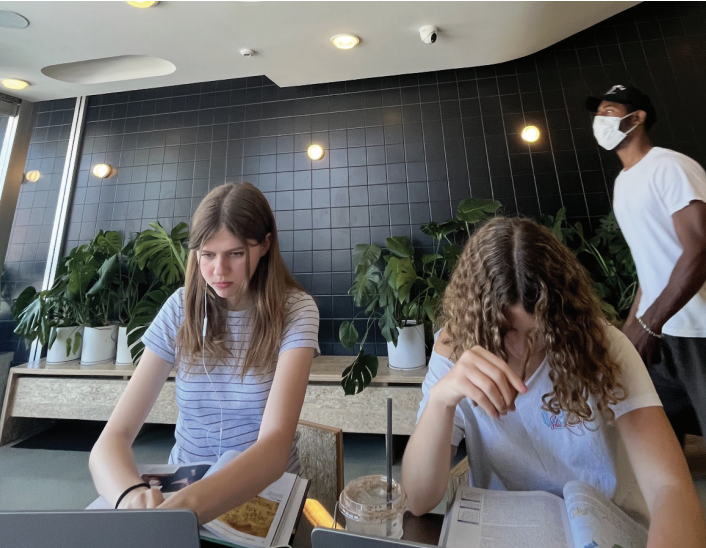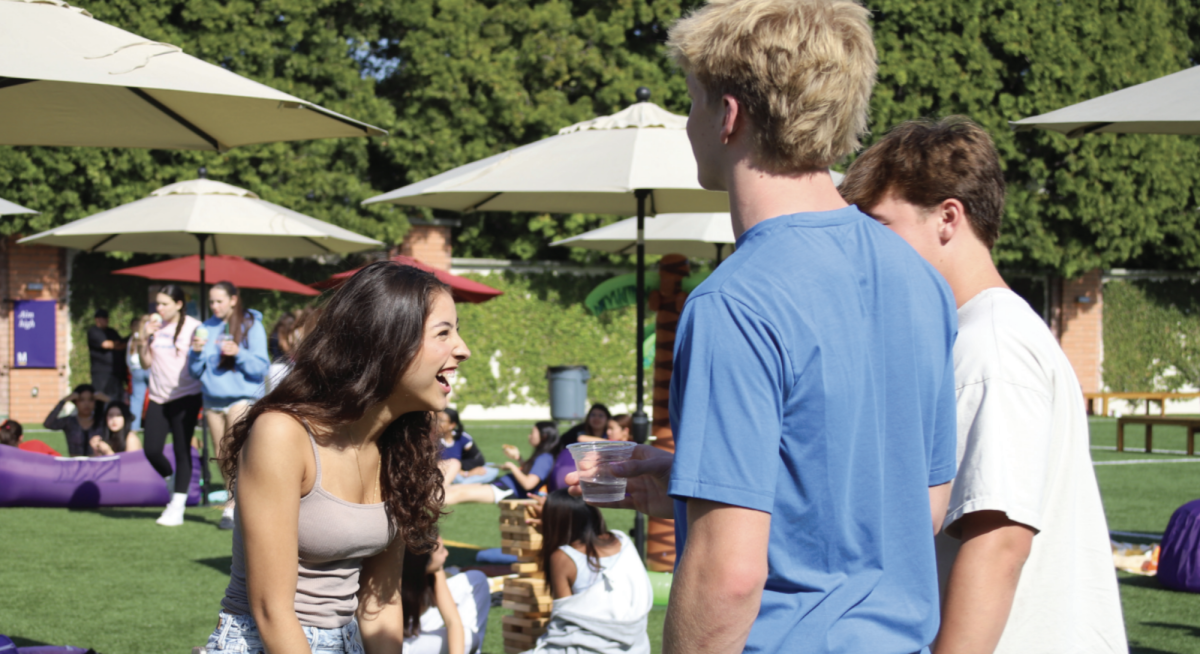A few weeks ago, I sat at Groundwork Coffee Co on Larchmont, seconds away from falling asleep from exhaustion. Armed with caffeine and false ambition, I came to the shop with two goals: cram for my seven-unit Advanced Placement (AP) Calculus test the next morning and skim an essay on the prison industrial complex for my Theories & Politics of Race class.
As my eyes blinked shut, I was jolted awake by an email from a member of my literacy club, asking if our club had ended because we hadn’t met in five months. An all-encompassing feeling of guilt washed over me. By signing up for every extracurricular imaginable and taking a number of rigorous courses that I thought would help my chances at college acceptance, I had spread myself too thin. The saddest part about this realization was that I had lost the feeling of excitement for learning.
Much like every year, I entered senior year filled with anticipation about the knowledge I would gain. I imagined the strides I would make in the French language and the eye-opening scholarship on critical race theory that I would become familiar with. I bought a journal designated for my extracurricular goals as Managing Editor of The UltraViolet (UV), Co-Chair of Violets’ Giving Circle (VGC), club president of The Next Chapter and researcher in the Honors Research Program. Eight months later, this passion to learn and make tangible change in my community had withered to nothing more than a lost cause.
So, readers, I implore you not to over-commit yourself at Marlborough. That AP course that you don’t truly have your heart in, drop it. The activity you suspect will be approached in a lackadaisical way, don’t do it. Instead, be intentional about your workload and engage only in the activities and courses that give you a purpose. Would you rather be the weak link in all five of your AP and honors courses, struggling to retain information or one of the strongest students in four of them? By choosing the latter, your teacher recommendations will thank you, and so will your long-term memory.
Oftentimes I look at the assignment calendar to find my upcoming week packed with three or even four large-scale assessments that I must prepare for at once. In addition, my time after school consists of leading VGC meetings until 5 p.m. or editing UV issues until 7 p.m. With simply not enough time in the day to give my 100% to all of my courses and extra-curriculars, I am forced to cram. About 30 minutes after taking the aforementioned test or quiz, the various concepts, terms and digits become hazy pieces of information with little meaning to my life. Being able to apply what I learned at Marlborough throughout college and beyond is incredibly important to me. If not for lasting knowledge, why does our education matter at all?
According to Oxford Learning, the best way to retain information for a long period of time is through spaced repetition, a tactic that involves studying materials in intervals to strengthen your memory. In a study done in 2009 by the University of California, Los Angeles, studying with time in between was more effective than cramming for 90% of students. The only way to achieve spaced repetition is through cutting out a few of the courses and activities that suck time and energy away from your days.
If every student agreed to quit their workhorse mentality and only focus on the courses that they cared about, you may think they would be putting themselves at a disadvantage for the college application process. However, highly-competitive universities are actually encouraging their applicants to not overdo their course load.
In 2013, the University of North Carolina at Chapel Hill published a study that showed first-year students who had taken more than five college-level courses in high school were performing the same or worse than students who had taken five or less.
Moreover, Dean of College Counseling Maggie Lucas says that colleges would prefer you to take fewer honors or AP courses if it meant that your grades were stronger.
“One less honors or AP is not going to make or break an admission decision, there is so much college review,” Lucas said.
Focusing on extracurriculars, you are not gaming the admissions process by being a part of countless clubs and organizations, which you put little time and effort into. My advice is that once you’ve reached the point where you have an idea of what types of things you’re interested in, whether it’s robotics, social justice, sports or a mix, devote your time to a few activities that you can fully immerse yourself in.
As Lucas said, colleges are looking for quality over quantity.











